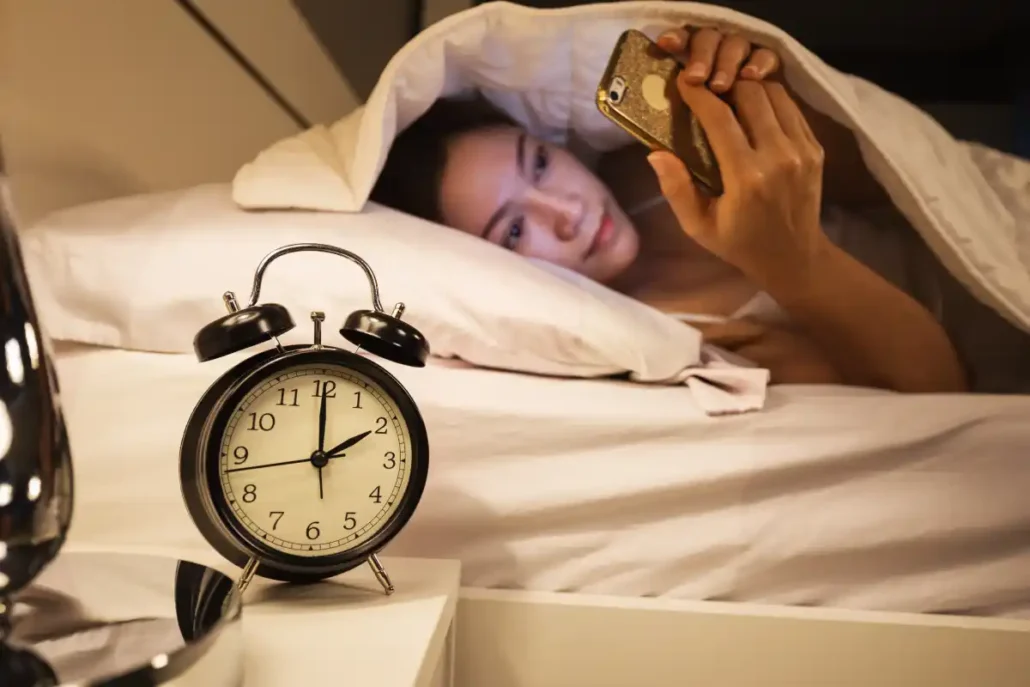
Spending hours in bed with your true love is one of the best things you can do with one another. And we’re not just talking about the kind of exploits you might read about in a steamy romance novel. The benefits of sleeping together – actually sleeping next to your partner – can have a positive impact on your personal well-being, as well as the health of your relationship.
So get ready to get closer, both physically and emotionally, this Valentine’s Day. We guarantee that you’ll enjoy it more than any box of chocolate or perfume you could receive.
It’s All about the “Cuddle Chemical.”
Oxytocin (aka the cuddle chemical or the love hormone) is a chemical compound produced in the brain that prompts feelings of empathy, trust, relaxation and reduced anxiety.
Levels of oxytocin rise when we make physical contact with another human being. So when you hop into bed and spoon with your honey or take it to the next level of intimacy, the chemical is released and you feel calm and protected. In turn, feeling safe and secure helps you to fall asleep more easily which gives you more time to cycle through the stages of deep, restorative sleep.
(Public Service Announcement: The effects of oxytocin can be powerful. Nuzzling can quickly turn into snoozing. So don’t be too offended if your partner dozes off right after you’ve snuggled up because you’re in the mood for a little action. You’re helping them to a better night’s sleep.)
The Perception of Proximity.
Maybe it’s the oxytocin rush. Maybe it’s evolutionary development that stems from our ancestors sharing sleeping quarters as a precaution during the vulnerable state of sleep. No matter the science or the biology of it, research finds that people simply feel better about their sleep when sharing the bed with a loved one.
One study from the University of Utah found an increase in reported sleep issues when people are temporarily separated from their bed partner – due to business-related travel, for example. When a couple is reunited after the separation, there was a dramatic decline in reported sleep problems.
Another multiyear study conducted by the University of Pittsburgh School of Medicine found that women in stable, long-term relationships slept better than single women or women who had a change in their sleeping arrangement, either losing a sleeping partner or gaining a new one.
Better Sleep Can Also Make You a Better Companion.
Whether we’re talking marriage, cohabitation (and doing your best to avoid those awkward are-you-ever-getting-married conversations with your mother) or anything in between, interpersonal relationships are built on strong emotional connections and clear, open communication.
However, we often lose control of our emotions and have difficulty communicating when we suffer from insufficient sleep. That’s a danger zone for relationships. Getting a good night’s rest is important to help better navigate disagreements and avoid conflict. Less petty arguing means happier relationships.
Now, Back to Bed …
No surprise, the sleep-relationship connection works the other way too. Highly functional relationships lead to improved sleep quality.
In a different study conducted by University of Pittsburgh School of Medicine, women reported getting better sleep on days when they had fewer negative interactions with their partners. Having a harmonious relationship can promote more blissful sleep. So get into bed with your better half, cuddle up and make some sweet dreams this Valentine’s Day and beyond.
Wait. What if Your Partner’s Snoring Wakes You Up?
Even if cuddling with your bed partner helped you fall asleep, sharing a bed with someone who has different sleep habits or a sleep disorder, like sleep apnea or restless leg syndrome, can disturb your sleep during the night. What then? Check out our tips and strategies to ensure you still get quality sleep as you reap all the benefits of sleeping with your partner. (Of course, it’s always a good idea to consult with a physician about any issues that regularly interrupt your sleep.)
Snuggle up next to your partner and learn how sleeping together at night can have a positive impact on your well-being. #BSCSleepTips @BetterSleepOrgSources:
- https://www.psychologytoday.com/us/basics/oxytocin
- https://www.ncbi.nlm.nih.gov/pmc/articles/PMC2903649/
- https://www.hormone.org/hormones-and-health/hormones/oxytocin
- https://www.ncbi.nlm.nih.gov/pubmed/18665709/
- https://www.sciencedaily.com/releases/2009/06/090610091345.htm
- https://www.ncbi.nlm.nih.gov/pmc/articles/PMC2950886/
This blog provides general information about sleep and sleep products. The words and other content provided in this blog, and in any linked materials, are not intended to replace a one-on-one relationship with a qualified heath care professional. This blog should not be construed as medical advice or used to diagnose, treat, prevent or cure any disease or condition. If the reader or any other person has a medical concern, he or she should consult with an appropriately-licensed physician or other health care professional. This blog is not a substitute for professional medical advice, diagnosis or treatment, and should not be relied upon to make decisions about your health or the health of others. Never disregard professional medical advice or delay in seeking it because of something you have read on this blog or elsewhere on bettersleep.org. If you think you may have a medical emergency, immediately call your doctor or dial 911.



